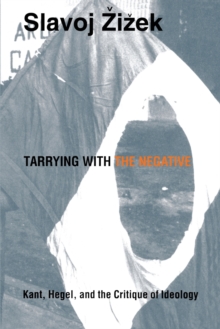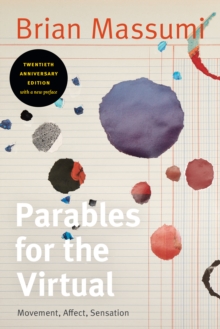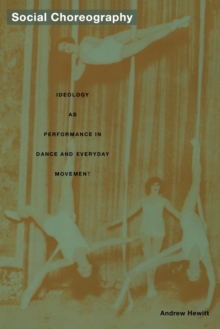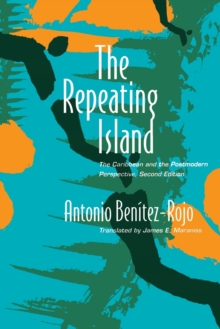
Tarrying with the Negative : Kant, Hegel, and the Critique of Ideology PDF
by Zizek Slavoj Zizek
Part of the Post-Contemporary Interventions series
Please note: eBooks can only be purchased with a UK issued credit card and all our eBooks (ePub and PDF) are DRM protected.
Description
In the space of barely more than five years, with the publication of four pathbreaking books, Slavoj Zizek has earned the reputation of being one of the most arresting, insightful, and scandalous thinkers in recent memory. Perhaps more than any other single author, his writings have constituted the most compelling evidence available for recognizing Jacques Lacan as the preemient philosopher of our time.
In Tarrying with the Negative, Zizek challenges the contemporary critique of ideology, and in doing so opens the way for a new understanding of social conflict, particularly the recent outbursts of nationalism and ethnic struggle. Are we, Zizek asks, confined to a postmodern universe in which truth is reduced to the contingent effect of various discursive practices and where our subjectivity is dispersed through a multitude of ideological positions? No is his answer, and the way out is a return to philosophy. This revisit to German Idealism allows Zizek to recast the critique of ideology as a tool for disclosing the dynamic of our society, a crucial aspect of which is the debate over nationalism, particularly as it has developed in the Balkans-Zizek's home. He brings the debate over nationalism into the sphere of contemporary cultural politics, breaking the impasse centered on nationalisms simultaneously fascistic and anticolonial aspirations. Provocatively, Zizek argues that what drives nationalistic and ethnic antagonism is a collectively driven refusal of our own enjoyment.
Using examples from popular culture and high theory to illuminate each other-opera, film noir, capitalist universalism, religious and ethnic fundamentalism-this work testifies to the fact that, far more radically than the postmodern sophists, Kant and Hegel are our contemporaries.
In Tarrying with the Negative, Zizek challenges the contemporary critique of ideology, and in doing so opens the way for a new understanding of social conflict, particularly the recent outbursts of nationalism and ethnic struggle. Are we, Zizek asks, confined to a postmodern universe in which truth is reduced to the contingent effect of various discursive practices and where our subjectivity is dispersed through a multitude of ideological positions? No is his answer, and the way out is a return to philosophy. This revisit to German Idealism allows Zizek to recast the critique of ideology as a tool for disclosing the dynamic of our society, a crucial aspect of which is the debate over nationalism, particularly as it has developed in the Balkans-Zizek's home. He brings the debate over nationalism into the sphere of contemporary cultural politics, breaking the impasse centered on nationalisms simultaneously fascistic and anticolonial aspirations. Provocatively, Zizek argues that what drives nationalistic and ethnic antagonism is a collectively driven refusal of our own enjoyment.
Using examples from popular culture and high theory to illuminate each other-opera, film noir, capitalist universalism, religious and ethnic fundamentalism-this work testifies to the fact that, far more radically than the postmodern sophists, Kant and Hegel are our contemporaries.
Information
-
Download - Immediately Available
- Format:PDF
- Pages:300 pages
- Publisher:Duke University Press
- Publication Date:19/10/1993
- Category:
- ISBN:9780822381822
Information
-
Download - Immediately Available
- Format:PDF
- Pages:300 pages
- Publisher:Duke University Press
- Publication Date:19/10/1993
- Category:
- ISBN:9780822381822










